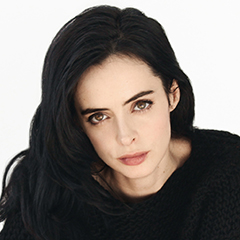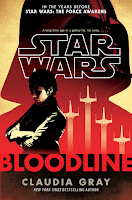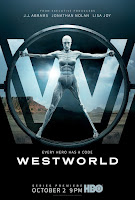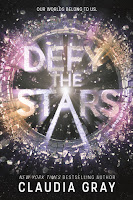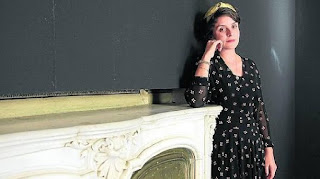I’ve been meaning to read Paul
Auster for a long time, so I was over the moon when I had the chance to review 4-3-2-1*. I know it’s very much a
different beast to his other books, firstly, in terms of scale and narrative
ambition, but it was well worth persevering with. It’s not one to be rushed, it
took me probably 3-4 weeks of my commute but I have missed it since finishing
it. It’s an extraordinarily layered coming-of-age tale (x4) – playful, tragic,
philosophical and wise. But it’s not so much a character study as the study of
an idea and it’s the wit and wisdom and tragedy with which Auster’s omniscient
narrator explores this idea that the book really impacts lastingly. There will
be a few spoilers in the following paragraphs so it may be best to read this
after the book itself.
‘Such an interesting thought, Ferguson said to himself: to imagine how
things could be different for him even though he was the same. The same boy in
a different house with a different tree. The same boy with different parents.
The same boy with the same parents who didn’t do the same things they did now… Yes,
anything was possible, and just because things happened in one way didn’t mean
they couldn’t happen in another. Everything
could be different’ - 1.2
The story begins with Ferguson’s
father initially emigrating to the U.S.A – and the comic moment where he
forgets the America surname he’d devised, and his German ‘vergessen’ is
mistaken for ‘Ferguson’. After the precedent for accident and irony have been
set, the story begins with young Archibald Ferguson’s entry into the world, and
the narratives divide into four. They have the same biology, the same DNA, they
are all born in the same hospital at the same time but then all move to
different suburban towns, and the fate of Ferguson’s father is different for
each. They ultimately all choose different kinds of writing as their calling
and, depending on events within their lives, become political to some degree
and foster different relationships, though the relationship with Ferguson’s
cousin Amy is fairly consistent with each.
While talking to Granta (https://granta.com/paul-auster-conversation/),
Auster laid out these themes and talked about how he wrote the book in a fever,
‘possessed’. He wanted to convey the idea that the ‘world is very precarious’,
‘life becomes death in a flash’ and ultimately, ‘we are all accidents’. The
death in a flash reference is quite literal for one of the young Ferguson’s –
who is killed by a tree struck by lightning. This is actually based on a real
event which has haunted Auster from his childhood, when a boy was electrocuted
by lightning next to him. Indeed the Fergusons all encounter random accidents,
and three meet unexpected premature ends at different stages of their young
lives. Each time is tragic as the omniscient narrator really elucidates the
accidental and random misfortune of the moment, yet you’ve been so enmeshed
with each Ferguson’s history and prospects and unique relationships, that each
one weighs heavily.
 |
| Paul Auster |
With 4 different narratives
marking that coming-of-age experience, there are perhaps moments when things
can feel repetitive. As puberty kicks in, you experience Ferguson’s first
sexual cravings four times, and these are told in great detail. But Auster is
nothing if not thorough in his mission and that is something to be admired
ultimately.
Auster is so good at drawing out
that human experience and those first realisations about the world as you grow
up. I particularly loved the moment that one young Ferguson realises that
adults are just as scared as children – something that’s intensely
recognisable:
‘His mother looked agitated, more confused and distraught than Ferguson
had ever seen her, no longer acting as the rock of composure and wisdom he had
always thought she was but someone just like himself, a fragile being prey to
sadness and tears and hopefulness, and when she put her arms around him he felt
frightened, not just because his father’s store had burned down and there would
be no more money for them to live on. But the truly frightening thing was to learn
that his mother was no stronger than he was, that the blows of the world hurt
her just as much as they hurt him and that except for the fact that she was
older, there was no difference between them’ - 1.2
So much of the book is about the
fragility and absurdity of existence, but also about living anyway – and not
succumbing to the accompanying fear. Often there are brilliant, standalone
sentences of the fates/universe/gods responding to events in this small
individual’s existence:
‘The gods looked down from their mountain and shrugged.’ 6.3
The indifferent universe is
something that I’ve always found intensely interesting in books I’ve read (I am
a big Camus fan and fan of post-war existentialism in general) and it’s very
much present here. In some ways it makes every action more poignant and
important, it’s frustrating and tragic, but it’s also freeing. There’s
something grimly satisfying about reading a line like that.
There are some reviews which have
called Auster self-indulgent in this novel, and perhaps that’s true to a degree, but I wouldn’t necessarily say it as a negative. I am fine with writers like
Auster, Gaiman, Atwood and indeed any writer being ‘self-indulgent’ so long as
what they’re writing stimulates thought and challenges a reader in a productive
way – ie. when a reader can reflect on it and draw multiple conclusions. They
very premise of 4-3-2-1 is by its
nature indulgent, and it’s open about that. Wouldn’t it be indulgent if we had four
separate lives we could live and dip into?
‘Ferguson understood that the world was made of stories, so many
different stories that if they were all gathered together and put into a book,
the book would be nine hundred million pages long.’ 4.4
We should always try to read
things which challenge us, and maybe even make us a little uncomfortable at
times.
‘No, Ferguson replied, when Artie’s parents asked if he agreed with
this boy, but that was what made their conversations so instructive, he said,
because every time Mike challenged him he would have to think harder about what
he believed in himself, and how could
you ever learn anything if you only talked to people who thought exactly as you
did’? 4.4
Auster explores sexuality (specifically pansexuality),
political feeling, art, love, death and loss and so many of the colours on
these spectrums. The reflection sexuality on love and ‘choice’ are poignant.
All of the Ferguson’s follow wherever their feelings take them when it comes to
love and sex – they very much fall in love with the person.
‘She still didn’t think of herself as a lesbian, she was simply a
person in love with another person, and because that other person was beautiful and entrancing and unlike anyone else
in the world, what difference did it make if she was in love with a man or a
woman’ 4.3
‘Why did a person have to choose between one or the other, why block
out one-half of humanity in the name of normal or natural when the truth was
that everyone was Both, and people and society and the laws and religions of
people in different societies were just too afraid to admit it. As the
California cowgirl had said to him three and a half years ago: I believe in my
life, Archie, and I don’t want to be scared of it. Brian was scared. Most
people were scared, but scared was a
stupid way to live, Ferguson felt, a dishonest and demoralizing way to live, a
dead-end life, a dead life.’ 5.3
‘It wasn’t that Ferguson felt any enthusiasm for the Democrats, but it
was important to make distinctions, he told himself, important to recognise
that there were bad things in this flawed world, but also even worse things,
and when it came to voting in an election, better to go for the bad over the worse’
6.1
I delighted in moments like these
- that last quote must be a cheeky reference to real-life politics and the
situations that the UK and USA have found themselves in in the last couple of
years. Indeed – another one:
‘What moment could be more important for the writing of books than a
year when the world was on fire—and you were on fire with it?’ 7.4
There’s something to be learned
in the individual lives of each Ferguson – in all the banal moments, the icky firsts, the freak accidents, and the existential quandaries. For me, the ending is clever and makes you think back on all you've read, adding further layers and elements of pathos. There's so much in this novel that could be explored and unpicked - but these are
my thoughts as of now on a work I certainly admire and still find myself revisiting in my mind. It's a commitment worth making.
More favourite quotes:
Self-aware narration:
‘There was, as there always is, another side to the story’ 2.1
On music:
‘The need for music that ran through their bodies, which as that point
in their lives was no different from the need to find a way to exist in the
world’ 2.1
On curiosity:
‘Anger and disappointment could take you just so far, he realised, but
without curiosity you were lost’
2.4
Even with four versions of a
live, you’ll never have THE answer – just answers:
‘I’m saying you’ll never know if you made the wrong choice or not. You
would need to have all the facts before you knew, and the only way to get all
the facts is to be in two places at the same time—which is impossible.’ 2.4
On feeling:
‘We feel what we feel, he wrote, and we’re not responsible for our
feelings. For our actions, yes, but not for what we feel’ 3.4
A beautiful moment of
self-reflection:
‘Ferguson was beginning to understand how fragile he was, how difficult
it was for him to steer his way through even the smallest conflicts, especially
conflicts brought on by his own flaws and stupidities. For the point was that he needed to be loved, loved more than most
people needed to be loved, entirely loved without respite through every waking
minute of his life, loved even when he did things that made him unlovable,
especially when reason demanded that he not be loved, and unlike Amy, who
was pushing her mother away from her, Ferguson could never let go of his
mother.’ 4.3
On life and the self:
‘People die, and the world goes on, and whatever we can do to help each other out, well, that’s what we do,
isn’t it?’ 6.1
‘And what did it mean to be himself anyway, he wondered, he had several
selves inside him, even many selves, a strong self and a weak self, a
thoughtful self and an impulsive self, a generous self and a selfish self, so
many different selves that in the end he was as large as everyone or as small
as no one, and if that was true for him, then it had to be true for everyone
else as well, meaning that everyone was
everyone and no one at the same time’ 6.3
‘The world as it was could never be more than a fraction of the world,
for the real also consisted of what could have happened but didn’t, that one
road was no better or worse than any other road, but the torment of being alive in a single body was that at any given
moment you had to be on one road only, even though you could have been on
another, travelling toward an altogether different place’ 7.4
*Thank you to Faber for the chance to review 4-3-2-1 through Netgalley.





